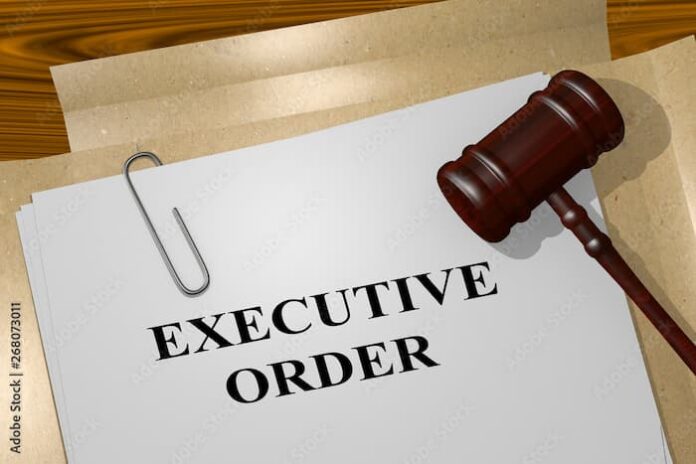Amid the flurry of executive orders issued on his first day back in the Oval Office, President Trump waded into the ongoing debate about return-to-office best practices, mandating all federal workers begin reporting in person “as soon as practicable.”
The federal return-to-office order instructed heads of executive branch departments to “take all necessary steps to terminate remote work arrangements.” The memo does allow for exemptions that leaders “deem necessary.”

Industry analyst Josh Bersin says the sweeping new policy will “shock employees and managers throughout the government and will likely result in turnover, lowered employee engagement and lots of management challenges.
“Remember, people relocated and took many new positions as a result of remote work, so many of these are life issues, not work policies,” Bersin adds. “This also means the federal government’s ability to hire highly skilled professionals will also be hurt.”
A trickle-down effect on private employers?
The Office of Personnel Management last year estimated that about 54% of federal civilian workers were back to working full-time in person, with about 10% having stayed entirely remote post-pandemic. Trump’s move has been touted by the administration as an effort to boost productivity but is being criticized by pundits as an intentional move to drive attrition and stack the government with loyalists.
The order is already getting pushback from unionized federal employees, about a quarter of whom have formal hybrid or remote arrangements.
In a statement this week, Everett Kelley—president of the American Federation of Government Employees, comprised of 800,000 federal and D.C. government workers—called the federal return-to-office order a “backward action” that “turns back the clock to before 2010,” when Congress directed federal agencies to increase telework opportunities.
He argued that the Trump campaign and transition team have exaggerated the number of federal employees working remotely full-time, noting that the success of hybrid strategies has enabled the government to consolidate or close some office spaces—which could create a significant challenge in the coming weeks and months.
Hybrid work, Kelley added, can be a “key tool for recruiting and retaining workers in both the public and private sectors. Restricting the use of hybrid work arrangements will make it harder for federal agencies to compete for top talent.”
The order—which came at the same time Trump announced a federal hiring freeze—affects more than 2.3 million federal workers, making the government the latest and largest to join the list of employers mandating workers come back to the office full-time.
See related video: Return-to-office trends: Will Amazon and Dell lead the way?
Jasmine Escalera, a career expert with MyPerfectResume, predicts that the new federal return-to-office mandate—coupled with similar shifts from large employers—will empower more employers to require employees to “return to their cubicles,” creating new pressures for HR.
“For HR leaders, this could mean stepping in and helping organizations consider the best policies possible to avoid talent loss or symptoms of the Great Detachment hitting their company,” she says, noting that employees who begrudgingly return to the office are likely to exhibit a drop in engagement and productivity.
An employee-centered approach to return-to-office
Federal union pushback to Trump’s announcement is in step with ongoing outcry about return-to-office mandates in the private sector. Earlier this month, JPMorgan Chase announced all hybrid employees would need to begin reporting to the office five days a week starting in March, prompting reports that some employees are looking to unionize in response.
According to recent research from MyPerfectResume, just 2% of the more than 4,200 U.S. workers surveyed want to work in-person full-time, yet about 40% say their employer is looking to increase office attendance. More than one-quarter of those organizations are threatening to fire employees for non-compliance.
“This isn’t just about employees wanting to maintain the flexibility and balance remote work provides, although that is a major consideration,” Escalera says about the data. “The workforce understands the profound benefits that a remote work setup has brought to balancing the responsibilities of both career and home life.”
Despite the Trump team’s positioning that hybrid and remote work hinder productivity, recent research from health and tech PR and marketing firm Bospar finds employees feel the opposite: More than 60% say they are more productive when working from home, and more than 80% report their work/life balance has improved.
If the federal mandate plays out like similar policies at private employers, it may lead to lasting damage to the employee-employer relationship. More than three-quarters of employees surveyed by MyPerfectResume believe return-to-office policies are designed to give leaders more control over employees.
Understanding the impact on organizations
“This distrust can have serious consequences for companies and HR, including employees deciding to find more supportive companies aligned with their values and damage to workplace culture,” says Escalera.

That’s a reality that could be even starker for women: New research out this month from the Pew Research Center found that 49% of women, compared to 43% of men, would quit their job if their current ability to work from home was eliminated.
To lessen the risk of turnover, Escalera advises HR leaders to carefully consider what could be motivating their workforce to prefer hybrid or remote arrangements. Such efforts should include surveys on how employees work best and perks that could ease the transition back to the office.
“Another approach could be to base return-to-office requirements on job functions rather than applying a blanket approach,” she adds. “Failure to approach RTO with this level of care and proactive thought could lead to serious clean-up work for HR leaders. As conversations occur, HR can be at the forefront of ensuring a fair approach that less impacts their workplace.”
Yet, if return-to-office policies do proliferate—driven by the federal government and tech industry leaders like Amazon and X, which now mandate five days in the office—there may be one silver lining for some organizations: Mass talent exoduses, says Pavel Shynkarenko, founder of global HR platform Mellow, could ultimately be a boon for organizations willing to offer flexible work arrangements.
“While big tech plays it safe, mid-sized companies and start-ups have a golden opportunity,” Shynkarenko says. “Over the next year, we’ll see a tug-of-war between traditional office setups and flexible work models. For the remote work industry, this is a defining moment.”



